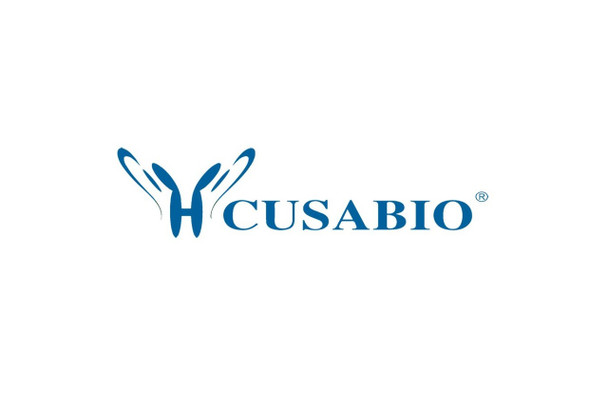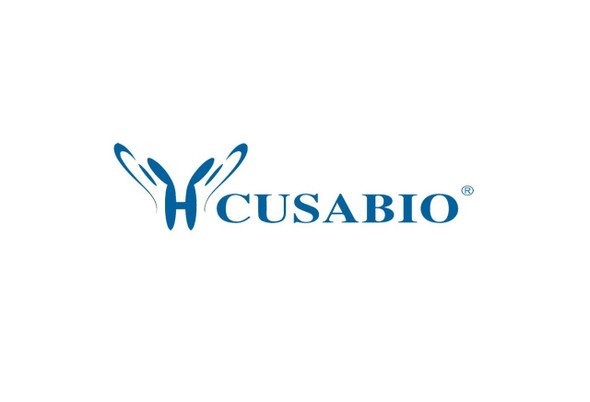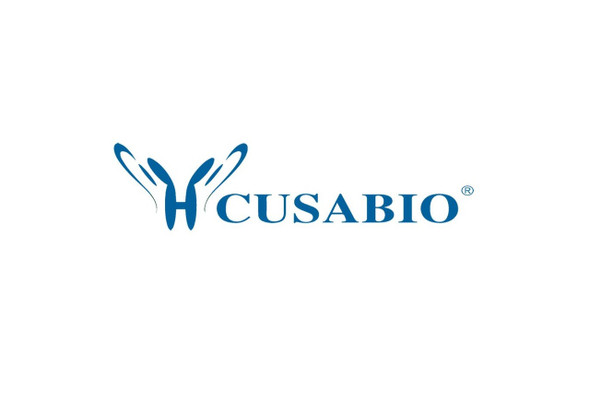Cusabio Mouse Recombinants
Recombinant Mouse SAM domain and HD domain-containing protein 1 (SAMHD1), partial | CSB-EP020691MO
- SKU:
- CSB-EP020691MO
- Availability:
- 13 - 23 Working Days
Description
Recombinant Mouse SAM domain and HD domain-containing protein 1 (SAMHD1), partial | CSB-EP020691MO | Cusabio
Alternative Name(s): Interferon-gamma-inducible protein Mg11SAM domain and HD domain-containing protein 1
Gene Names: SAMHD1
Research Areas: Others
Organism: Mus musculus (Mouse)
AA Sequence: DIMITDAFLKADPYVEITGTAGKKFRISTAIDDMEAFTKLTDNIFLEVLHSTDPQLSEAQSILRNIECRNLYKYLGETQPKREKIRKEEYERLPQEVAKAKPEKAPDVELKAEDFIVDVINVDYGMEDKNPIDRVHFYCKSNSKQAVRINKEQVSQLLPEKFAEQLIRVYCKKKDGKSLDAAGKHFVQWCALRDFTKPQDGDIIAPLITPLKWNNKTSSCLQEVSKVKTCLK
Source: E.coli
Tag Info: N-terminal 6xHis-tagged
Expression Region: 395-626aa
Sequence Info: Partial
MW: 30.6 kDa
Purity: Greater than 90% as determined by SDS-PAGE.
Relevance: Host restriction nuclease that blocks early-stage virus replication in dendritic and other myeloid cells. Likewise, suppresses LINE-1 retrotransposon activity. May function by reducing the cellular dNTP levels to levels too low for retroviral reverse transcription to occur. May play a role in mediating proinflammatory responses to TNF-alpha signaling .
Reference: Mutations involved in Aicardi-Goutieres syndrome implicate SAMHD1 as regulator of the innate immune response.Rice G.I., Bond J., Asipu A., Brunette R.L., Manfield I.W., Carr I.M., Fuller J.C., Jackson R.M., Lamb T., Briggs T.A., Ali M., Gornall H., Couthard L.R., Aeby A., Attard-Montalto S.P., Bertini E., Bodemer C., Brockmann K. , Brueton L.A., Corry P.C., Desguerre I., Fazzi E., Cazorla A.G., Gener B., Hamel B.C.J., Heiberg A., Hunter M., van der Knaap M.S., Kumar R., Lagae L., Landrieu P.G., Lourenco C.M., Marom D., McDermott M.F., van der Merwe W., Orcesi S., Prendiville J.S., Rasmussen M., Shalev S.A., Soler D.M., Shinawi M., Spiegel R., Tan T.Y., Vanderver A., Wakeling E.L., Wassmer E., Whittaker E., Lebon P., Stetson D.B., Bonthron D.T., Crow Y.J.Nat. Genet. 41:829-832(2009)
Storage: The shelf life is related to many factors, storage state, buffer ingredients, storage temperature and the stability of the protein itself. Generally, the shelf life of liquid form is 6 months at -20?/-80?. The shelf life of lyophilized form is 12 months at -20?/-80?.
Notes: Repeated freezing and thawing is not recommended. Store working aliquots at 4? for up to one week.
Function: Host restriction nuclease involved in defense response to virus. Has dNTPase activity and reduces cellular dNTP levels to levels too low for retroviral reverse transcription to occur. Blocks early-stage virus replication in dendritic and other myeloid cells. Likewise, suppresses LINE-1 retrotransposon activity. May play a role in mediating proinflammatory responses to TNF-alpha signaling. Has ribonuclease activity, acting on single-stranded RNA.
Involvement in disease:
Subcellular Location: Nucleus
Protein Families: SAMHD1 family
Tissue Specificity:
Paythway:
Form: Liquid or Lyophilized powder
Buffer: If the delivery form is liquid, the default storage buffer is Tris/PBS-based buffer, 5%-50% glycerol. If the delivery form is lyophilized powder, the buffer before lyophilization is Tris/PBS-based buffer, 6% Trehalose, pH 8.0.
Reconstitution: We recommend that this vial be briefly centrifuged prior to opening to bring the contents to the bottom. Please reconstitute protein in deionized sterile water to a concentration of 0.1-1.0 mg/mL.We recommend to add 5-50% of glycerol (final concentration) and aliquot for long-term storage at -20?/-80?. Our default final concentration of glycerol is 50%. Customers could use it as reference.
Uniprot ID: Q60710
HGNC Database Link: N/A
UniGene Database Link: UniGene
KEGG Database Link: KEGG
STRING Database Link: STRING
OMIM Database Link: N/A









